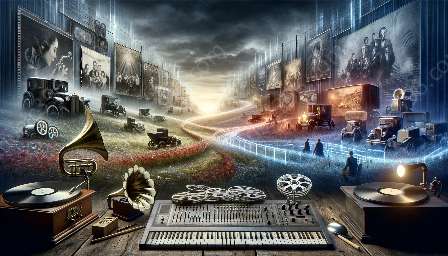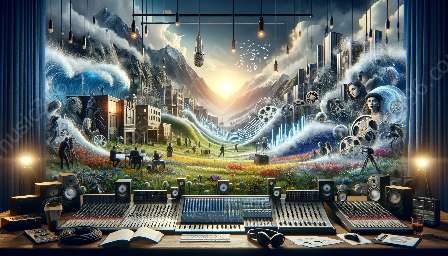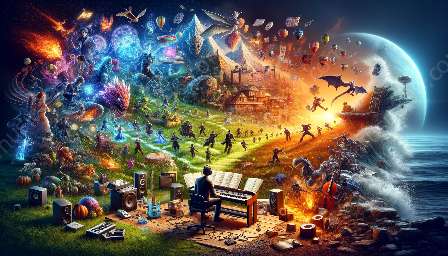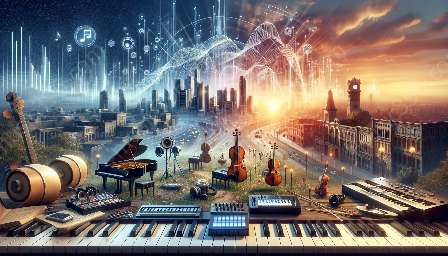Soundtracks play a crucial role in enhancing the emotional impact of a film or any visual medium, evoking various emotions, from joy and excitement to fear and sadness. This article explores the intricate relationship between sound components in soundtracks and their profound effects on human emotions, shedding light on how soundtracks contribute to emotion elicitation and create profound emotional experiences for the audience.
The Psychology of Soundtracks and Emotion Elicitation
Music has the remarkable ability to influence human emotions. When combined with visual content, such as in films, documentaries, or video games, soundtracks become powerful tools for eliciting specific emotional responses from the audience. The emotional effects of sound components in soundtracks are rooted in the psychological aspects of music perception and cognition.
Research in music psychology has shown that soundtracks can elicit emotions through various mechanisms, including melody, harmony, rhythm, and dynamics. For example, an uplifting melody accompanied by a crescendo in the music can evoke feelings of triumph and celebration, while a slow, haunting melody with dissonant harmonies may induce a sense of unease and foreboding.
Furthermore, soundtracks often utilize leitmotifs – recurring musical themes associated with specific characters, places, or emotions – to establish emotional connections and trigger the audience's emotional memory. When a familiar leitmotif reappears during a crucial moment in the storyline, it can evoke nostalgia, anticipation, or empathy, intensifying the emotional impact of the scene.
The Power of Soundtracks in Evoking Emotions
Soundtracks serve as powerful tools for shaping the emotional landscape of a narrative. They intensify the visual and narrative elements, making it easier for audiences to immerse themselves in the story and empathize with the characters. Moreover, sound components in soundtracks can bring depth and nuance to the emotional arcs of the characters, adding layers of complexity to their experiences and motivations.
One of the most remarkable aspects of soundtracks is their ability to manipulate the emotional trajectory of a scene. By modulating tempo, instrumentation, and dynamics, composers can guide the audience's emotional responses, heightening tension, evoking empathy, or instilling a sense of wonder. Whether through a swelling orchestral score or a minimalist ambient composition, soundtracks have the power to elicit emotional responses that resonate deeply with the audience.
How Soundtracks Influence Emotions and Enhance Storytelling
Soundtracks play a pivotal role in enhancing storytelling by offering emotional cues that complement and amplify the narrative. They can convey emotions that are not explicitly expressed through dialogue or visuals, providing a subtext that enriches the audience's experience. In this way, soundtracks act as emotional conduits, bridging the gap between the narrative and the audience's emotional engagement.
Furthermore, sound components in soundtracks contribute to the overall atmosphere and tone of a story. Whether it's the ominous silence before a jump-scare in a horror film or the triumphant fanfare accompanying a hero's victory, soundtracks shape the emotional contours of each scene, leaving a lasting impression on the audience.
Moreover, soundtracks have the potential to transcend cultural and linguistic barriers, as emotions are a universal language. A well-crafted soundtrack can evoke similar emotional responses across diverse audiences, fostering a shared emotional experience that transcends individual differences.
In Conclusion
Soundtracks wield a profound influence on human emotions, eliciting a wide range of emotional responses and elevating the storytelling experience. By harnessing the emotive power of sound components in soundtracks, creators can craft compelling narratives that resonate with audiences on a deeply emotional level. The emotional effects of soundtracks go beyond mere accompaniment, as they actively contribute to the emotional journey of the audience, enriching their emotional experiences and fostering a deeper connection with the story and its characters.





















